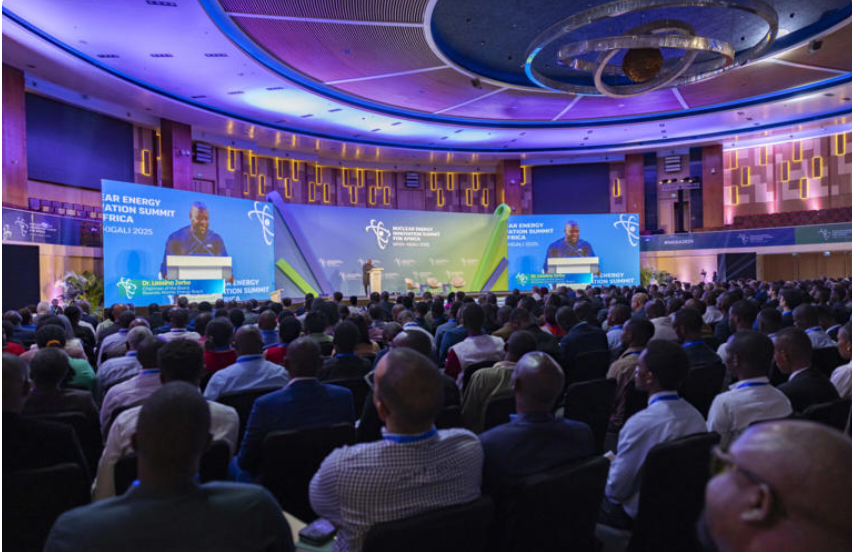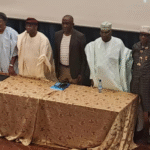By Daniel Niyongabo
KIGALI, RWANDA – As Africa’s population surges towards a projected 3 billion in the coming decades, leaders attending the Nuclear Energy Innovation Summit for Africa (NEISA 2025) in Kigali are advocating for the rapid adoption of nuclear energy as a critical element in meeting rising energy demands, fueling industrialization, and achieving sustainable development.
Drawing policymakers, energy leaders, and nuclear experts from over 40 countries, the summit is focused on elevating nuclear energy as a cornerstone of Africa’s sustainable future. Discussions center around the potential of Small Modular Reactors (SMRs) and Micro Modular Reactors (MMRs) to drive energy self-sufficiency, expand access to clean electricity, combat climate change, and accelerate industrial growth across the continent.
“The future of the African energy landscape will continue to be driven by increasing energy demand and population growth,” stated Rwandan Prime Minister Edouard Ngirente during the summit’s opening ceremony. He stressed the crucial need for African nations to unite in adopting renewable and environmentally friendly energy sources, emphasizing their potential to both accelerate development milestones and protect the environment.
Prime Minister Ngirente highlighted the stark reality that 600 million Africans currently lack access to electricity. He positioned nuclear energy as a vital, sustainable, and non-polluting resource capable of playing a transformative role in expanding energy access and tackling climate challenges.
“This is an opportunity that African leaders must seize,” Ngirente urged, emphasizing the importance of establishing robust frameworks that can accelerate growth and foster inclusive development across the continent through the adoption of nuclear technologies.
NEISA 2025, which concludes on Tuesday, is organized in collaboration with leading international institutions, including the International Atomic Energy Agency (IAEA), the United Nations Economic Commission for Africa (UNECA), the Nuclear Energy Agency (NEA), the World Nuclear Association (WNA), and key regional financial institutions. The summit underscores the growing recognition of nuclear energy’s potential to address Africa’s pressing energy needs and contribute to a more sustainable and prosperous future.









